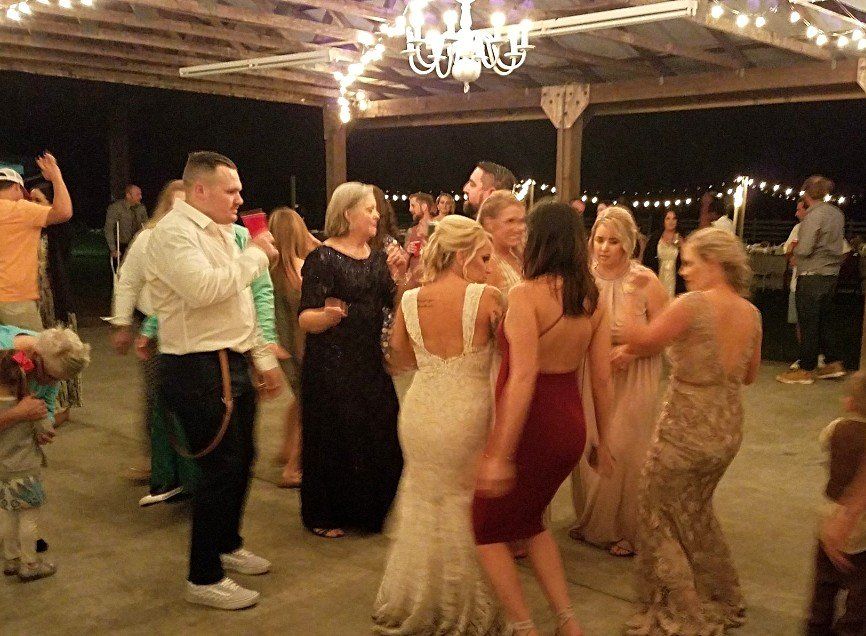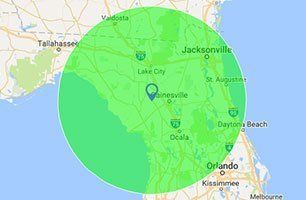TDC Entertainment, Inc. Blog
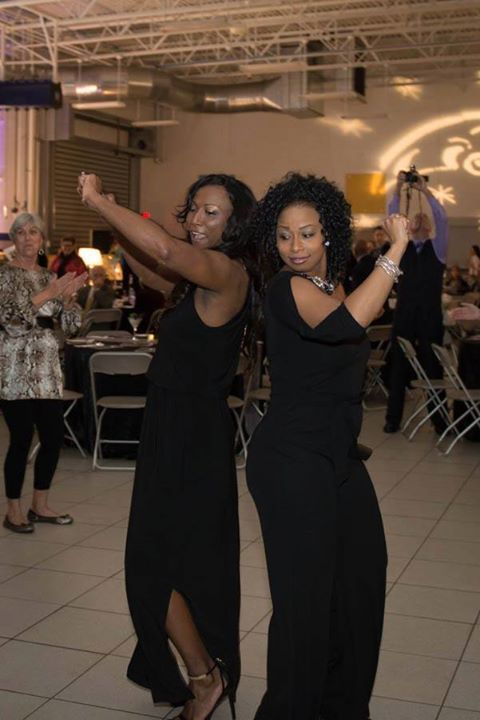
No matter how many vendors that you have involved with your event, you need to find out exactly what they offer (different packages and service options) and how they can meet your particular needs and desires. There are many options out there for you to choose from, so there is no need for you to skimp or to compromise your wishes and desires. You are the one hiring them, so you should be able to have things exactly as you want them!
There are some reasonable restrictions that may apply. For instance some venues may not allow sparklers or bubbles that may cause damage or present a liability. A band or DJ might tell you that you can't 'drop the mic' after a toast because it can damage their equipment. These are reasonable restrictions. However, if you get a particular vendor telling you something like 'That's not the way we do it', you do not need to compromise your plans to fit in with their view of things. Again, you are the customer......you hired them! If they insist on you following the way that they do things, it's probably best to find another vendor.
An example may illustrate this point better. I have DJ'ed a wedding in the past at an elegant Bed & Breakfast, where the couple getting married had planned with me to do their toast and cake cutting about midway through dinner. They were informed by the venue manager that they needed to wait until after dinner because the staff needed time to clear the tables and serve coffee. The couple was told, "That is the way we do our presentation here."......Amazing!! This couple cooperated with the procedures of the venue and it caused an inordinate amount of time to elapse, leaving very little time for dancing and celebration. The couple expressed to me afterwards that they really enjoyed the music that I was playing and had wished that they were able to have more time for it. There is no reason that the venue could not have accommodated this couple and changed their 'normal presentation'!
I have also seen cases where the band or DJ paid little attention to the specific musical requests of the people who hired them and played their 'usual playlist'. This does not need to, nor should it ever, happen!! To repeat..... You are the customer!......Have it your way!!!
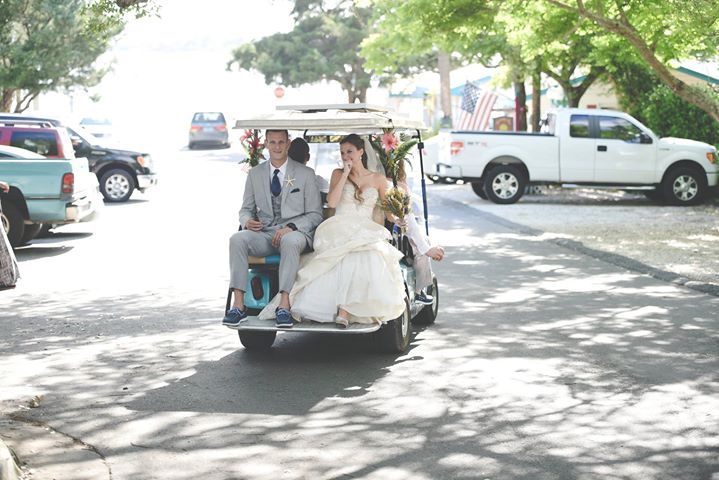
On the surface this seems like a brilliant idea….and it can be. A holiday weekend gives people more flexibility with their planning. Since Monday is a holiday, and most people will have the day off, Sunday can now function like a Saturday does……people can celebrate with you late into the night and still have the next day off to rest up or travel back home (if they’re from out of town) ! Moreover, since (most) people have Saturday off as well, out of towners have more time to travel to your event. On top of all this, Sundays are considered an ‘off prime’ day in the Wedding Industry since the vast majority of people book their weddings on Saturdays. (See my previous post.) Therefore, you can realize significant savings from most of the vendors involved in your event!
There is one big caveat in this idea, which, if not considered, can negatively impact your plans. Holiday weekends (which are usually far and few between) are big family and/or vacation times for many people. If you are planning to have your event during a holiday weekend (for the great reasons stated above) , you need to make an extra effort to ensure that you are getting firm commitments from the people who RSVP ‘yes’ to your invitation.
As a holiday weekend approaches, people will sometimes change their plans and might think that not showing up at your wedding will make little to no difference since ‘everybody else will be there’. I did a wedding on a Memorial Day weekend a few years back where this ended up having a major impact. The couple had received over 150 RSVP’s from people who had said that they were going to attend their wedding. Only 35 people showed up! I’m willing to bet that many of the people, who decided to no-show, thought that they would be the only ones who did so and therefore they would not be missed. The bride was beside herself with grief and no amount of consolation could mitigate her disappointment.
The above scenario can be avoided (or at the very least, minimized) by getting firm commitments from your guests and even double checking with them a few weeks before your wedding date. Make sure that they are making ‘your day’ a priority!
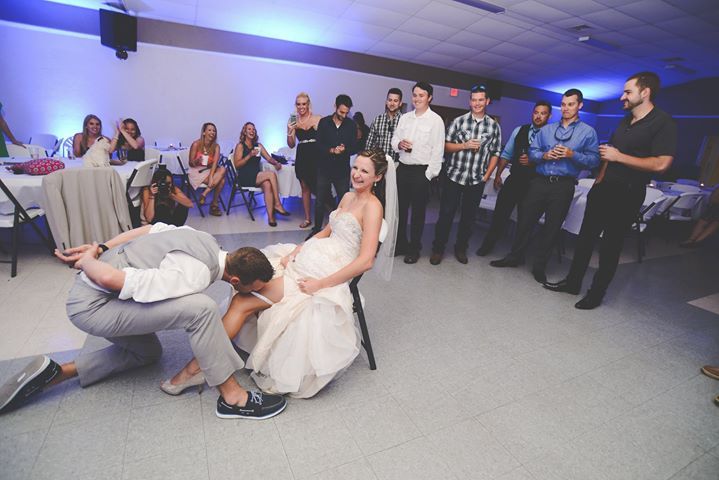
What Day of The Week Shall I Have My Wedding??....
This may seem (to some) to be a silly question……”Of course we’re having it on a Saturday!..........Saturday is ‘The Wedding Day’!!” Yes, Saturday is, by far, the most popular (and logical) day on which to have your wedding. People are (generally) off on weekends and having your event on a Saturday allows people the opportunity to attend and the time to get there easily. The next day, Sunday, is also (usually) a day off for most people and it provides a day for them to rest before the work week begins (especially if your Wedding Celebration goes late into the night) .
Why consider having your event on any other day?? The simple and straightforward answer to that question is economy. There are many different vendors involved in any wedding (Venues, Catering, Photographers, DJ’s, Florists, etc.) and the costs involved can add up pretty (and sometimes alarmingly) quickly! One way to economize on the cost of your wedding is to choose a day other than Saturday. In the Wedding Industry (and yes, it is an industry) , Saturday is considered ‘The Prime Wedding Day’ (for many of the reasons outlined above) . Therefore most (read all) vendors charge their premium rates on that day…. law of supply and demand! Conversely, most of the wedding vendors offer a discount (many times, significant) for events held on other days of the week. Given the number of different vendors involved, this can result in big savings!
The above facts need to be balanced with the logistical issues of attendance…. what’s the use of ‘big savings’ if people can’t make it?! This is the reason that most people still wind up choosing Saturday, even though it will cost them top dollar. Friday is the end of the work week, but the issue of people having enough time to get off work and make it to your event can be problematic. Sunday is indeed a day off for most people, but a Sunday wedding would (generally) need to be held early in the day so that people have time to ‘recuperate’ for the work week.
There are ways to minimize the attendance issues of having your wedding on a non-prime day. They involve your relationship with and knowledge of your guests, your expectations for your event……and the (apparent) brilliant epiphany……’I know! I’ll have my Wedding during a Holiday weekend!!’
More on this in a future post!
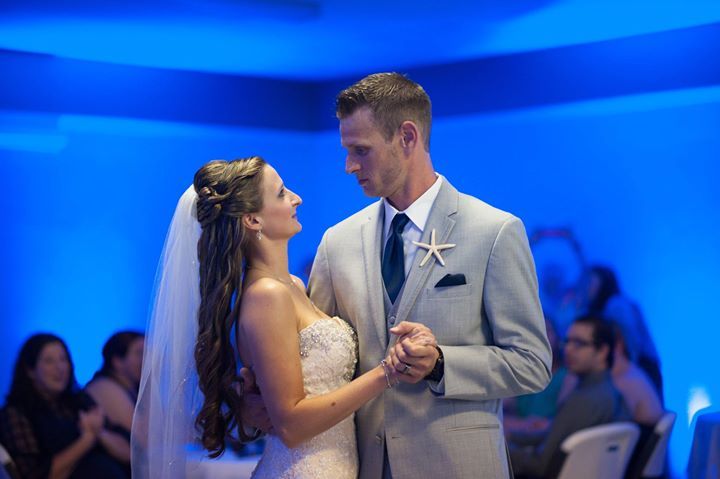
My previous tip touched upon a couple of things that can impact your event vis a vis dancing, namely the presence (or absence) of alcohol at your event and the location (placing) of the bar near the main room.
In this tip I would like to discuss the topic of the ‘timing’ of your event…...and by timing, I mean the time of day that your event is held.
In the 25 years that I have been DJing and/or hosting various engagements, I have noticed one thing…...when it comes to killing a dance atmosphere, nothing does a better job than daylight! For some reason, most people’s celebratory clock is not calibrated to function during the daylight hours. Even if there are alcoholic beverages present, people just don’t feel comfortable cutting loose (especially in an interior event venue) when the sun is up. To be sure, most people might join in a (usually slow) dance (or two) to celebrate (for instance) the joining of a couple in matrimony, but it’s difficult (at best) to get them to stay on the dance floor for any appreciable amount of time. I have seen exceptions to this (very few) , but for the most part this phenomenon is almost axiomatic.
The most notable exceptions to this rule are daylight events that are held outdoors (i.e. pool parties, picnic type family reunions, company fun days, etc.) . I discovered this by accident some years ago when I was DJing a day wedding that was held in an elegant lodge inside of a local state park. The building had a very nice reception room and a large, outside deck overlooking a lake. After the first dance, and the opening of the dance floor, people quickly migrated to the outside deck to socialize, leaving very few people inside. On a whim, I put my speakers out on the deck and, lo and behold, dancing started to break out spontaneously in various locations, culminating (ultimately) in a ‘dance floor’ that lasted well into the evening! This reinforced my observation about dancing (from my previous tip) ………. that people prefer to be coaxed into a dancing situation (by hearing music that they love and/or seeing others cutting loose) rather than being put on the spot.
I am by no means suggesting that you cannot (or should not) plan to have your event during the daytime! There are many reasons (logistical or otherwise) that you might have to favor a daytime event. I am merely suggesting that you keep all of this in mind to avoid any possible expectations that might set you up for a feeling of disappointment. Dancing is not the only measure of the success of any given event. Each engagement is unique unto itself, and there are many levels of ambiance that can define its success!

1.) To Drink Or Not To Drink... (that is the question) ....One of the big options that people face when planning their event is whether or not there will be alcohol present and, if so, how much. There is no doubt that a drink or two can loosen people up and encourage them to participate in the celebration. However, as with everything in life, you want to strike a balance here. You want your guests enjoying the party and feeling free to get out there and celebrate with you, however you probably won't want them stumbling about the dance floor. Make sure that your bartenders understand and keep an eye out for folks who may have reached "their limit". In this way you can maximize the enjoyment and safety of your guests, while minimizing undesired distractions. While alcoholic beverages at your event can increase the numbers on your dance floor, it is by no means a necessary element. I have done many events where there was no alcohol available, yet people were on the dance floor the entire evening.
2.) Can you tell me where the bar is?? ....Even if you don't have alcoholic beverages available at your event (but definitely if you do!), it is usually desirable to have the available drinks served at a bar. The big question is whether or not the bar is in the same room (or vicinity) of the dance floor. Sometimes the logistics of the event (size of the room and number of guests) can preclude being able to have the bar in the same room, however, whenever possible, try to arrange it so that the bar can be in the main room. When it comes to dancing, there is a big reason for this.....people don't respond well to being "put on the spot".......(i.e. "It is now time for you to dance!" ). People need a spot where they can feel comfortable and be able to socialize without the pressure of having to get on the dance floor. They can then be coaxed onto the dance floor on their own terms (hearing music that they love and/or seeing others having a great time on the dance floor) ! When people have to leave the room to go to the bar (a place where people enjoy to congregate) they tend not to get onto the dance floor and, furthermore, the chances that they may depart go up dramatically. Keep the bar (and the people) as close as you can to the celebration!
..... check us out next week for more on this topic!!

For better or worse, anyone can write a blog post about anything they want. Everyone has a voice and the best voices will rise to the top.
The writer can show their personality:
In blog posts, the writer has more leeway to add in their voice and personality than other types of writing.
Blogs are a great form of mass communication:
You can help people, learn new things, entertain your audience-the possibilities are endless and amazing. Blogging opens up all of these to a very wide audience.
You can make money:
Get the right blog going and you can make a lot of money through advertising and sponsored posts.
It allows people to craft better thoughts:
Instead of reading haphazard, uneducated Facebook statuses, it's much better to see people's thought process in a well-written blog post.
You can establish a community:
Blogging allows you to connect with other individuals who share the same interests. Sharing ideas and opinions within your community helps establish yourself as a thought leader.
Good for SEO:
Keeping content on your site fresh and relevant, you can use your blog to boost the search engine ranking (SEO) of your site and your business.
It brings people back to your site:
If your blog is strong enough and updated regularly, people will come back looking for more and bring traffic back to your site as well.
It's free:
It costs you a grand total of zero dollars to post to the blog, so if you have something to say, there's nothing to stop you.
You can establish yourself as a thought leader:
A blog is a great place for your original thoughts, and it can be a wonderful way to show off your individuality. If people like your ideas, you can become a thought leader in your industry!
What else do you love about blogs? Let me know!

No matter how many vendors that you have involved with your event, you need to find out exactly what they offer (different packages and service options) and how they can meet your particular needs and desires. There are many options out there for you to choose from, so there is no need for you to skimp or to compromise your wishes and desires. You are the one hiring them, so you should be able to have things exactly as you want them!
There are some reasonable restrictions that may apply. For instance some venues may not allow sparklers or bubbles that may cause damage or present a liability. A band or DJ might tell you that you can't 'drop the mic' after a toast because it can damage their equipment. These are reasonable restrictions. However, if you get a particular vendor telling you something like 'That's not the way we do it', you do not need to compromise your plans to fit in with their view of things. Again, you are the customer......you hired them! If they insist on you following the way that they do things, it's probably best to find another vendor.
An example may illustrate this point better. I have DJ'ed a wedding in the past at an elegant Bed & Breakfast, where the couple getting married had planned with me to do their toast and cake cutting about midway through dinner. They were informed by the venue manager that they needed to wait until after dinner because the staff needed time to clear the tables and serve coffee. The couple was told, "That is the way we do our presentation here."......Amazing!! This couple cooperated with the procedures of the venue and it caused an inordinate amount of time to elapse, leaving very little time for dancing and celebration. The couple expressed to me afterwards that they really enjoyed the music that I was playing and had wished that they were able to have more time for it. There is no reason that the venue could not have accommodated this couple and changed their 'normal presentation'!
I have also seen cases where the band or DJ paid little attention to the specific musical requests of the people who hired them and played their 'usual playlist'. This does not need to, nor should it ever, happen!! To repeat..... You are the customer!......Have it your way!!!

On the surface this seems like a brilliant idea….and it can be. A holiday weekend gives people more flexibility with their planning. Since Monday is a holiday, and most people will have the day off, Sunday can now function like a Saturday does……people can celebrate with you late into the night and still have the next day off to rest up or travel back home (if they’re from out of town) ! Moreover, since (most) people have Saturday off as well, out of towners have more time to travel to your event. On top of all this, Sundays are considered an ‘off prime’ day in the Wedding Industry since the vast majority of people book their weddings on Saturdays. (See my previous post.) Therefore, you can realize significant savings from most of the vendors involved in your event!
There is one big caveat in this idea, which, if not considered, can negatively impact your plans. Holiday weekends (which are usually far and few between) are big family and/or vacation times for many people. If you are planning to have your event during a holiday weekend (for the great reasons stated above) , you need to make an extra effort to ensure that you are getting firm commitments from the people who RSVP ‘yes’ to your invitation.
As a holiday weekend approaches, people will sometimes change their plans and might think that not showing up at your wedding will make little to no difference since ‘everybody else will be there’. I did a wedding on a Memorial Day weekend a few years back where this ended up having a major impact. The couple had received over 150 RSVP’s from people who had said that they were going to attend their wedding. Only 35 people showed up! I’m willing to bet that many of the people, who decided to no-show, thought that they would be the only ones who did so and therefore they would not be missed. The bride was beside herself with grief and no amount of consolation could mitigate her disappointment.
The above scenario can be avoided (or at the very least, minimized) by getting firm commitments from your guests and even double checking with them a few weeks before your wedding date. Make sure that they are making ‘your day’ a priority!

